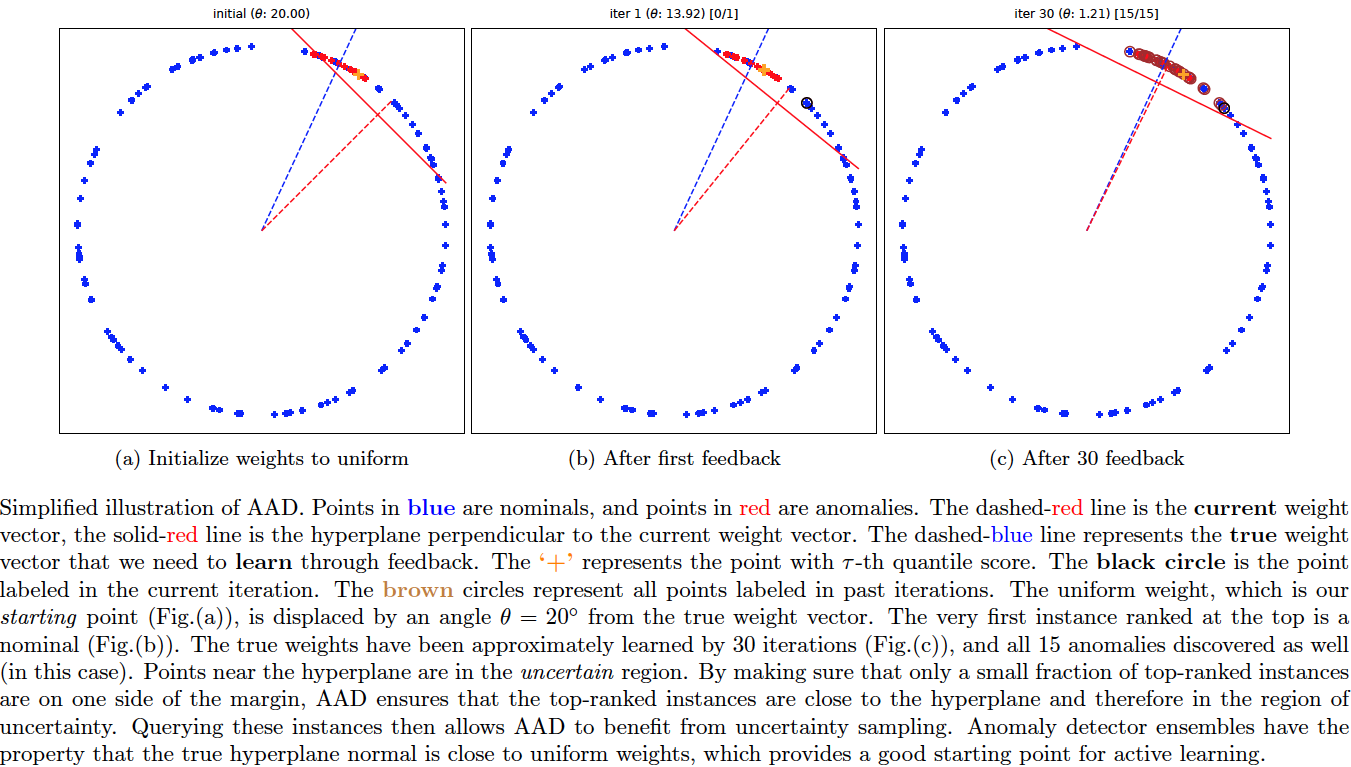GLAD: GLocalized Anomaly Detection via Human-in-the-Loop Learning
Human analysts that use anomaly detection systems in practice want to retain the use of simple and explainable global anomaly detectors. In this paper, we propose a novel human-in-the-loop learning algorithm called GLAD (GLocalized Anomaly Detection) that supports global anomaly detectors. GLAD automatically learns their local relevance to specific data instances using label feedback from human analysts. The key idea is to place a uniform prior on the relevance of each member of the anomaly detection ensemble over the input feature space via a neural network trained on unlabeled instances. Subsequently, weights of the neural network are tuned to adjust the local relevance of each ensemble member using all labeled instances. GLAD also provides explanations which can improve the understanding of end-users about anomalies. Our experiments on synthetic and real-world data show the effectiveness of GLAD in learning the local relevance of ensemble members and discovering anomalies via label feedback.
PDF Abstract
